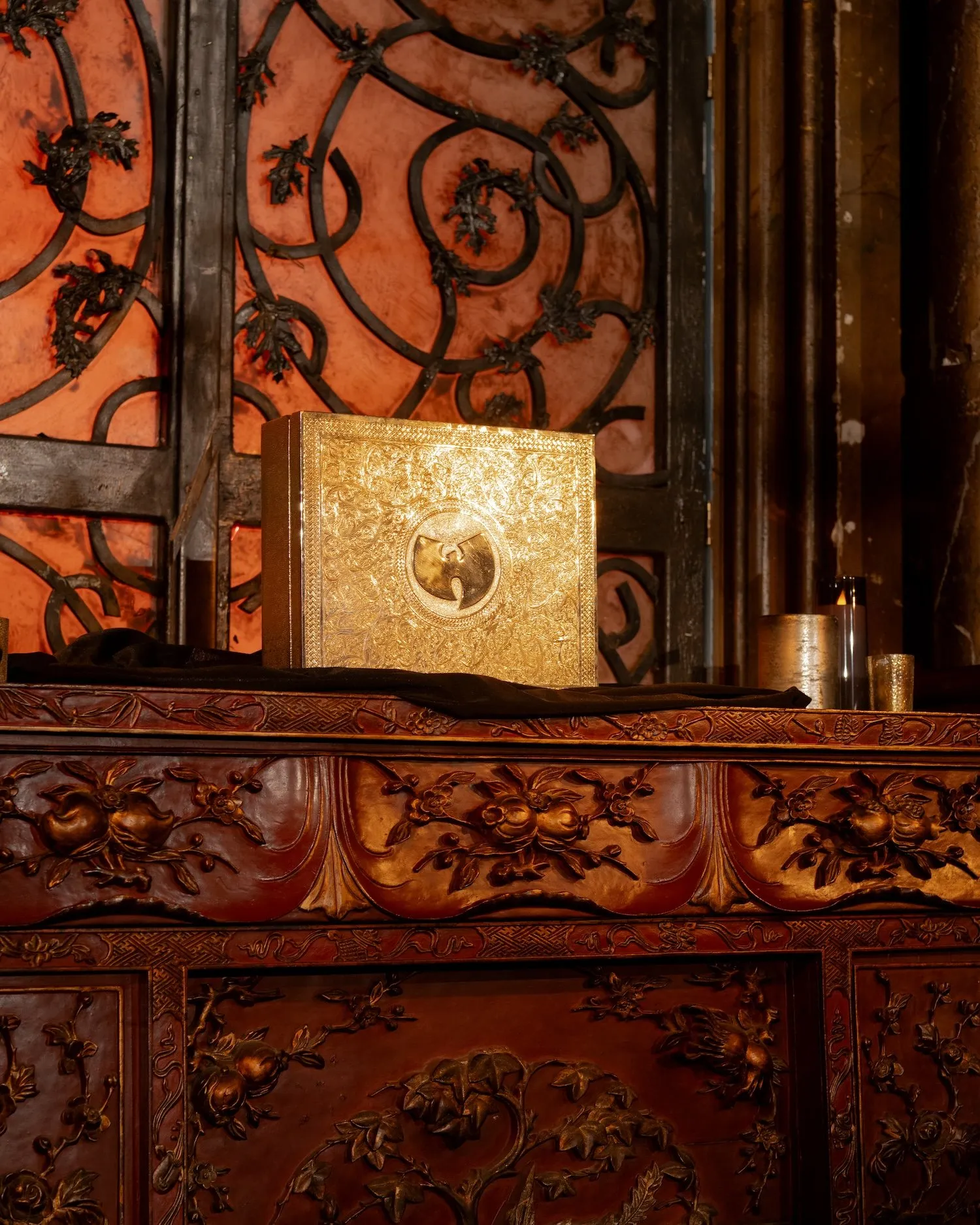In a curveball move, PleasrDAO, a crypto collective that collects objects of cultural relevance, announced on Thursday that it will soon begin selling encrypted, on-chain copies of “Once Upon a Time in Shaolin,” the one-of-a-kind Wu-Tang Clan record that PleasrDAO acquired in 2021 for $4 million.
The encrypted album will be made available today via a dedicated website for $1, according to a press release shared with Decrypt. The NFTs will live on Base, the rising Ethereum layer-2 scaling network from Coinbase, and their distribution will be handled by PleasrDAO in collaboration with Privy, Crossmint, and Holograph.
Thanks to the unique agreement crafted by the Wu-Tang Clan when they sold a single copy of the album in 2015, owners of “Once Upon a Time in Shaolin” were—until today—prohibited from commercially exploiting the record until 2103.
PleasrDAO, however, told Decrypt it has been working with the album’s producers in secret, over the last six months, to get exclusive commercialization rights to as much music on the album as possible.

Wu-Tang Clan’s “Once Upon a Time in Shaolin” album. Photo: PleasrDAO
So far, the DAO says it has managed to acquire rights to 16 of the 31 tracks on the album. It will now share progressively larger pieces of that selected library with purchasers of the encrypted album over time—effectively decrypting the album for holders, piece by piece.
PleasrDAO members who helped negotiate the deal trace its significance back a decade ago, to when the Wu-Tang Clan sold a single copy of an album they produced in secret for six years, as a means of protesting what they saw as the broken model of valuing music in an increasingly digital world.
“This album was created to question what it means to value music in the digital world,” Leighton Cusack, one of the founders of PleasrDAO, told Decrypt.
pic.twitter.com/N9SAggIA8Q
— ✨ Pleasr (@PleasrDAO) June 12, 2024
Blockchain technology appears to many members of PleasrDAO as the answer to that question.
“This is the new technology that lets us actually bring ownership back to the digital world,” Cusack continued. “And does that now make music valuable again?”
Key to the “Once Upon a Time in Shaolin” experiment is PleasrDAO’s expectation that many—if not most—purchasers of the on-chain album will be hip-hop fans, not die-hard crypto users.
Matt Matkov, PleasrDAO’s general counsel, emphasized that the purpose of the album release is to bring blockchain technology into the cultural mainstream—a feat that can only be achieved by engaging with the cultural mainstream itself.
“The whole point is that this industry is entitled to its own financial system,” Matkov told Decrypt. “But if it wants to grow with Web2, it’s not entitled to its own IP system.”
To that end, the technology underlying the album’s release has been crafted to be as user-friendly as possible. The album will be purchasable by credit card or Apple Pay in an off-chain payment flow. Users will then have crypto wallets created for them, and the NFTs minted and deposited, in a process that will be mostly obfuscated for the user.
The encrypted album will also be airdropped to certain lucky stockholders. Mostly as a nod to long-running rumors on Reddit that PleasrDAO planned to drop “Once Upon a Time in Shaolin” to holders of popular meme stock GameStop (GME), holders of the popular meme stock who verify their position will be airdropped a free copy of the album.
Central to the album’s release in this manner, PleasrDAO told Decrypt, was an understanding that the DAO would allow the producers and artists involved in the record to meaningfully profit from the work’s distribution.
👼 pic.twitter.com/HpXeOPClvG
— ✨ Pleasr (@PleasrDAO) June 11, 2024
They will receive a cut of the revenue generated by sales of these encrypted albums; they will also be permitted to perform songs from the album in live venues and release the record on streaming platforms like Spotify and Apple Music in the future (and gain royalties from those avenues as well).
On Tuesday, PleasrDAO sued “pharma bro” Martin Shkreli for retaining copies of the album and playing them to online audiences. A federal judge has temporarily banned Shkreli from playing it.
The DAO positioned Thursday’s announcement as a rebuke to Shkreli’s treatment of “Once Upon a Time in Shaolin.”
“Our lawsuit was a last resort because Martin illegally released music without paying the artists whose work we agreed to steward,” the organization wrote on Twitter. “We will be legally releasing the music and ensuring the artists get paid in the process.”
Edited by Andrew Hayward


